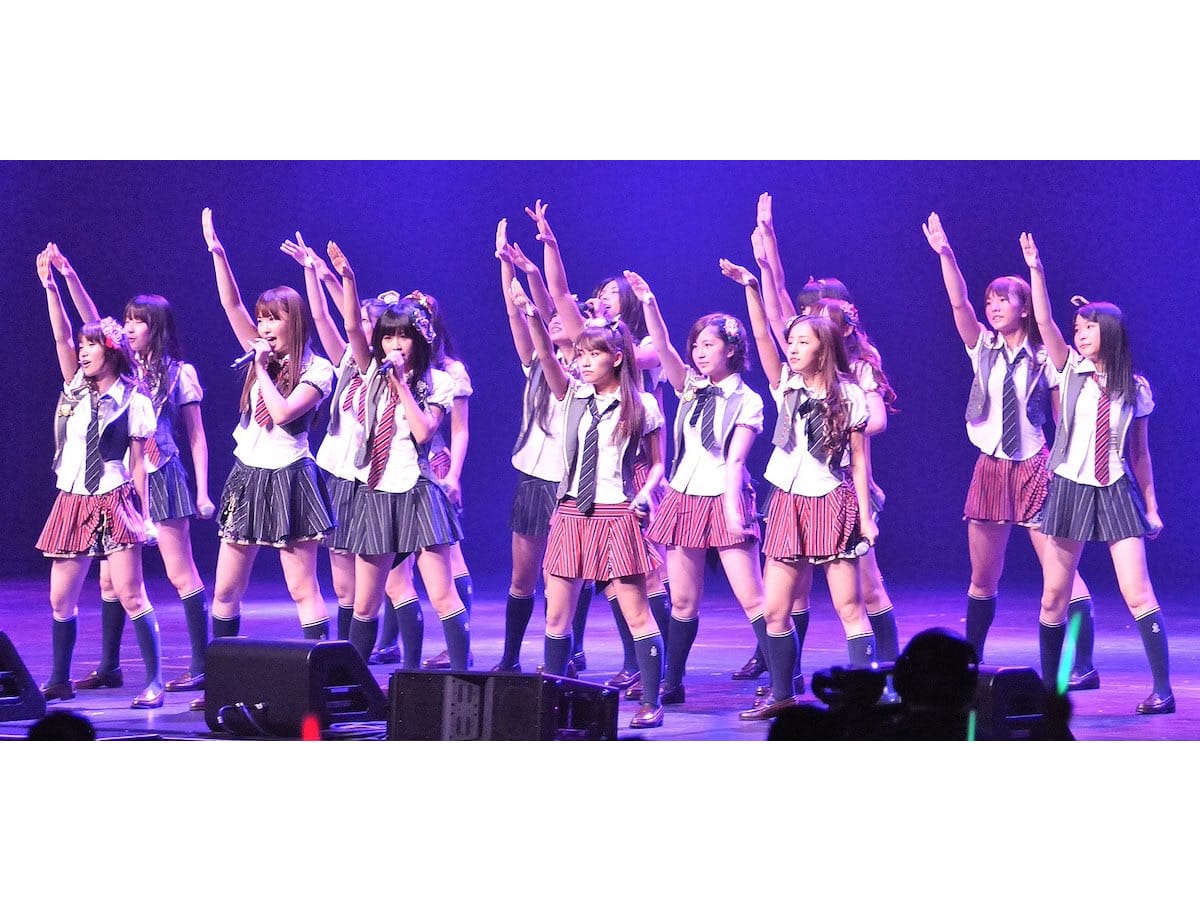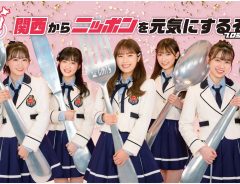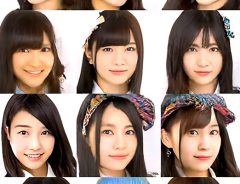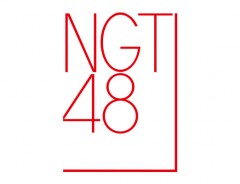
Source: kndynt2099, CC BY-SA 2.0, via Wikimedia Commons
AKB48: pioneers of pop music for the 21st century
- Tags:
- AKB48 / Japanese idols
Related Article
-

NMB48 has become the official ambassador for an app to support the restaurant industry!
-

This bag lets you switch from work or school to supporting your favorite character or idol
-

Japanese And American Medical Professionals Dance To An AKB48 Song To Raise Cancer Awareness
-

Japanese AI Automatically Generates Faces of Idols Who Don’t Exist
-

Members Of NGT48 Announced – How Is The Lineup?
-

Former AKB48 idol Minami Minegishi who famously shaved her head announces marriage


As a mass-marketed pop group with a pool of over 100 members from whom acts are chosen, AKB48 mark a remarkable departure from the traditional girl group.
AKB48’s pool of young tarento was originally 48-strong, hence the name. Although the majority of its currently 99 members are legal adults, many of them are teenagers, and some of them, still junior high school students.
AKB48’s songs are typical J-pop: short, fast-paced and high-pitched, with choruses that anyone can sing along to. They are a huge phenomenon in Japan, where they made over US$500m in revenue from CDs and DVDs between 2011 and 2013 alone.
What makes the band so phenomenally profitable is their business model, which targets both teenage girls and men, including middle-aged men. Western record companies have long recognised that the future of the music business rests on the shoulders of young girls.
They have been targeting younger audiences ever since the internet put back vast back catalogues just a click away. Thanks to YouTube, older music fans can go online for their music, so record companies have had to find younger audiences for their mass-marketed, high-sales model.
Of course, idol competitions like "American Idol" have also become big in the West in recent years. But even the savviest American record producer would struggle to find a band that appeals to both teenage girls and middle-aged men.
AKB48 figurines on sale at the AKB48 Art Club Exhibition. | Dick Thomas Johnson, CC 2.0 / © Flickr.com
The AKB48 model harks back to the days before western pop music came to Japan. The group’s producer, Yasushi Akimoto, wanted to put together a girl group with its own theatre where they could perform daily. That way, fans could always see them live, which is not the case with most pop groups, who just give occasional concerts and are usually seen on TV.
As theatrical performers, AKB48 are much like a review show, which were huge in Asakusa in the Taisho period. Then as now, the audience mainly wanted a spectacle and didn’t seek highly creative and avant-garde expressions.
The way the group is structured is also a throwback to the past. New members are called kenkyūsei (研究生 trainees) and live in-house as understudies to older members, a setup similar to the strict hierarchy of a geisha house.
Rules stating that AKB48 members are not allowed to have boyfriends echo the self-sacrifice demanded of Japan’s salarymen, and before them, its samurai warriors. Unsurprisingly, violation of the rules is severely punished, generally by expulsion from the group.
The first member of AKB48 to be fired from the group was Ayaka Kikuchi, after a purikura picture of her with a boyfriend was leaked to the press. AKB48 management criticised her for her “immature behaviour.”
Although it’s not the case for all male fans of the group, perhaps some of them crave an object for their love fantasies. This may even be what motivates some of them to flock to meet and greet events. AKB48 are famous for their interaction with their fans, especially at these events, where fans queue up for a seconds-long audience with their favourite member of the group.
To meet an idol, they have to buy a ticket; and to buy a ticket they first have to buy a CD. Such is their near-messianic devotion to the group, some fans buy multiple CDs, so they can meet their favourite member again and again.
In May 2014, Asahi TV featured an interview with a self-employed 38-year-old man who claimed to have spent ¥20 million (US$200,000) on AKB48 CDs. He bought them for the meet and greet tickets.
When the man was asked about the group, he used the word ‘we’ as if he were somehow part of their success. For those who are lonely and friendless, AKB48’s message to its fans - that they really matter - is one they are happy to pay to hear.
In 2016, an NHK documentary suggested that the phenomenal popularity of AKB48's meet and greet events may even be connected to the decline of romantic relationships among young Japanese people. Apparently, some fans would rather spend their time idolising their favourite idols than looking for a relationship in the real world.
As one of the favourite bands of Japan’s ‘herbivore men,’ AKB48 might offer solace to the lonely, but if we are to believe the abovementioned NHK documentary, in turning these female idols into objects of fantasy, they could also be contributing, however unwittingly, to the sexlessness at the heart of Japan’s demographic crisis.
The AKB48 Theatre is in the Don Quijote store in Akihabara.
__________
Sources:
1. True Crime Japan: Thieves, Rascals, Killers and Dope Heads: True Stories from a Japanese Courtroom, Paul Murphy, Tuttle 2016, p.186
2. "AKB48," Wikipedia.